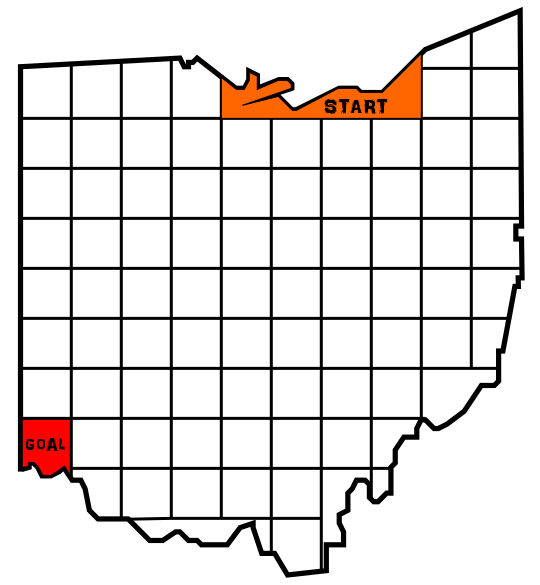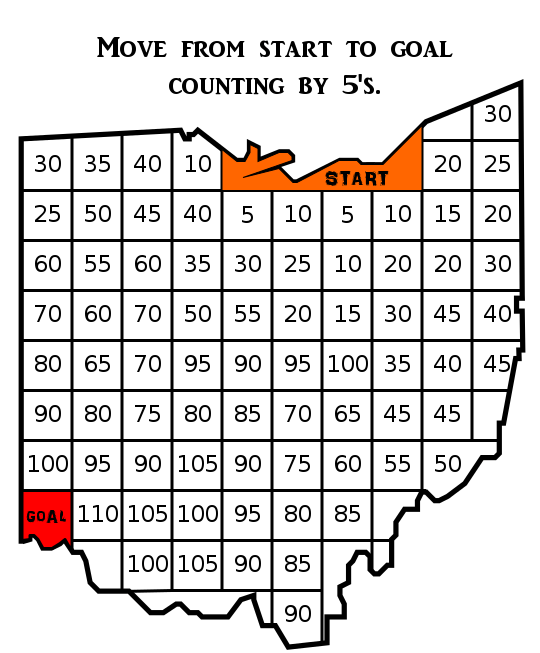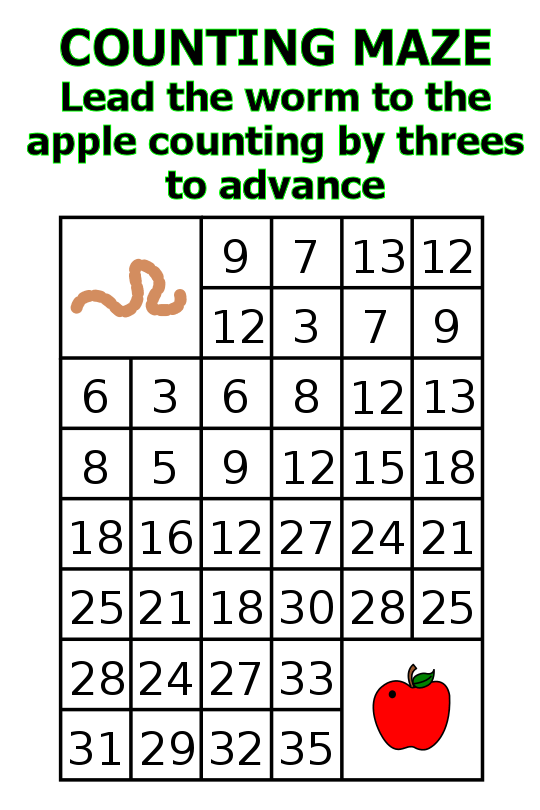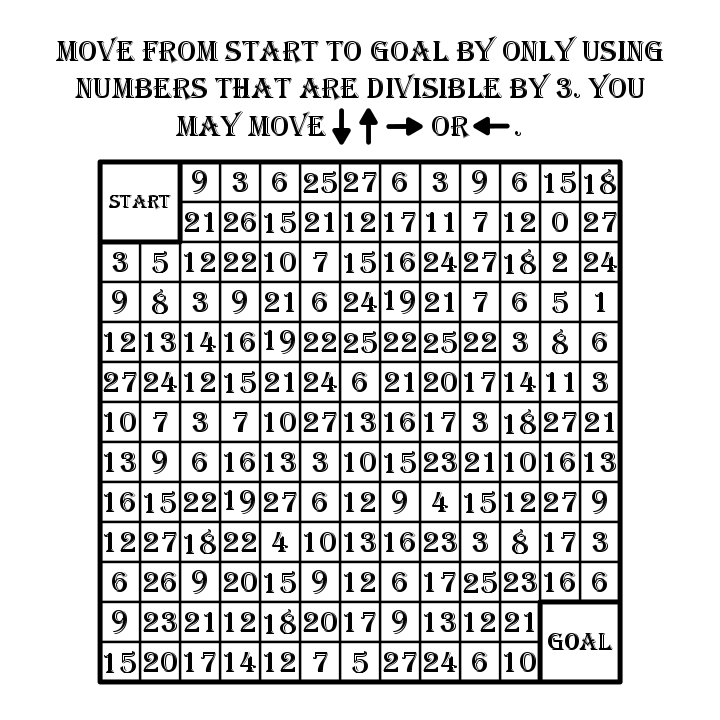In a series of posts I will show you how to make a maze in a wide variety of design constructions. The 30th type of maze construction is the Number maze. Let’s define what I mean, then get into the example. Every example will use the sample basic outline (the state of Ohio) to better illustrate the differences between each maze type.
Number Maze - A maze where moving from the Start to the Goal is done by following a series of numbers in a specific sequence. Examples are counting by 5’s, or by numbers that are divisible by 7.
How to Make a Number Maze
Step 1 - Draw the Outline
The outline of the maze makes the outer wall of the maze. It can be anything from a simple shape like a square, to a complex picture. The outline should be thicker than the internal lines to give the maze definition. In the example below I chose the state of Ohio. A more traditional maze uses a square or rectangle outline.
Step 2 - Draw a Grid
Draw a grid to fill the outline of the maze.
Step 3 - Choose the Start and Goal
I chose the large block in the north and a grid block in the far corner. As with any gridded maze the start and goal can be either internal or external to the outline. In my example I used internal.
Step 4 - Create the Solution
Make the solution to the maze based on the number system you have chosen, filling grids to create a path from the start to the goal of the maze.
Step 5 - Create False Pathways
Fill in any remaining blocks with incorrect answers, or short possible pathways that lead to dead ends. While a normal pathway is drawn to a dead end, a number maze uses possible numbers to create dead pathways. For a good example look at the 5 directly under the START. You may move left, right, or down to the 10 block. Two of these will become false moves.
Step 6 - Add Directions
Can be done at any time in the process, but must be done. Add directions to explain to the solver how they can move through the maze. In my example you can count by 5’s to move from start to goal.
Step 7 - Create a Final Solution
Highlight the correct path in the final version of the maze to create the final maze solution (shown here in gold).
Additional Number Maze Examples
Here is another example of a Number maze (here called a counting maze) made for children. The structure is a more normal rectangle shape for a number maze and the start and goal are items, in this case a worm going to an apple.
The next example uses a slight variation on the number maze - using larger number to move forward in the maze.
Size and complexity can make a number maze complex. Use only Prime numbers (google search…). Here is larger maze using division.
Interested in learning how to make or draw other types of digital mazes ? I have step by step instructions on how to make over 40 different maze types.
If you prefer making labyrinths, you can find step by step labyrinth making instructions.










